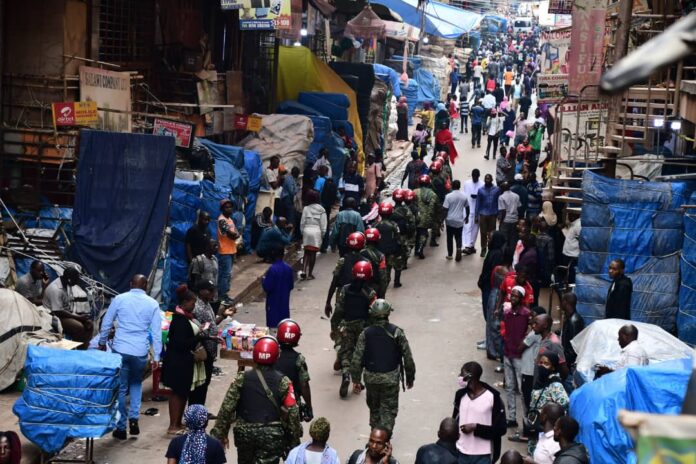Several traders in Kikuubo and other areas in downtown Kampala on Monday, April 8, 2024, closed their shops in protest against what they describe as unfair taxes imposed by the government as well as growing competition from Chinese businessmen, according to the Daily Monitor.
The traders were protesting against the unfair tax policy of EFRIS, the digital tax verification method being used by URA, the 18% VAT, and allowing foreigners to engage in similar businesses as Ugandans.
There are more questions than answers on whether it is the end of the beginning or the beginning of the end to the increased moments of profound economic darkness in the country’s business sector.
Many mega businesses around Kampala are struggling; some have laid off workers as a cost-cutting measure, while others are forced to migrate from conventional methods of operations to digital.
These include both foreign and local companies that are currently engulfed with high debts and high taxes at the same time. For example, in December 2020, the Uganda National Association of Building and Civil Engineering Contractors (UNABEC) wrote to Finance Minister Matia Kasaija, requesting the government bail out Roko since the bailout would save more contractors and their jobs.
The increased financial stress in the Ugandan business sector deters the development of innovations and entrepreneurship and has also facilitated the collapse of several local and multinational businesses.
In October 2023, Aya Investment Limited, which owns the Pearl of Africa Hotel in Kampala, lost a bid to stay the execution of an order to auction the hotel for non-payment of loans amounting to over US$300 million.
In December 2022, Picfare and Nytil, companies that had operated businesses in Uganda for over 20 years, decided to close business. According to a notice by the liquidator, the decision by Picfare to quit the Ugandan market was made on October 25, 2022.
These are an addition to several local foreign companies like Shoprite, Africell, Uganda Telecom, and other small businesses in Kikubo and elsewhere in Uganda that have exited the Ugandan market.
Why is it becoming very difficult to maintain business in the Ugandan market?
The radical economic and fiscal policies are always complained about by the business sector, but to my mind, these are often ignored or reversely implemented, which has left the business sector on probabilities.
According to Reuters, on March 6, 2024, the Bank of Uganda raised its interest rate over the shilling slide and also raised its inflation forecasts over the next 12 months. Core inflation rose to 3.4% in February from 2.4% in January.
Could there be an initiative to ensure that both local and foreign businesses survive the interest rates on loans and the inflation rate? There are not any at the moment, which risks many businesses to high levels of indebtedness coupled with macro-economic instabilities.
In simple terms, several other businesses are headed for collapse due to accumulated loans and the unfavorable economic environment if policies to shield the business community are not advanced in time.
It is similar to a herdsman who milks a cow without adequately feeding it. Definitely, the returns will keep diminishing or be minimal.
In conclusion, the country needs revenues generated through taxes, but there will be no revenues in a dead business environment. Dead businesses will not pay taxes that the government badly needs, so it should revise its fiscal policy and ensure macro-economic stability.
Is it the end of the beginning or the beginning of the end of the increased moments of profound economic darkness in the country’s business sector?















